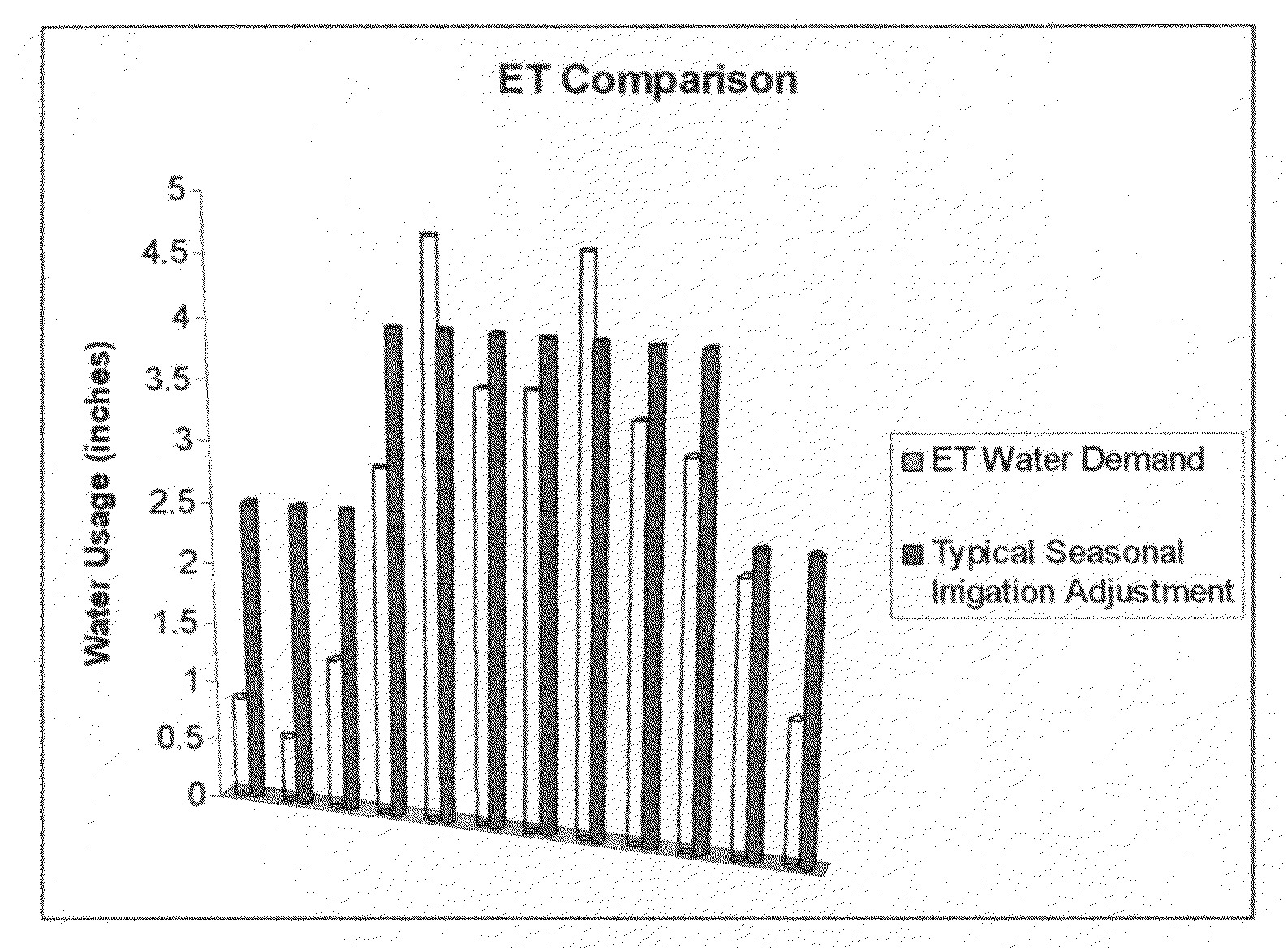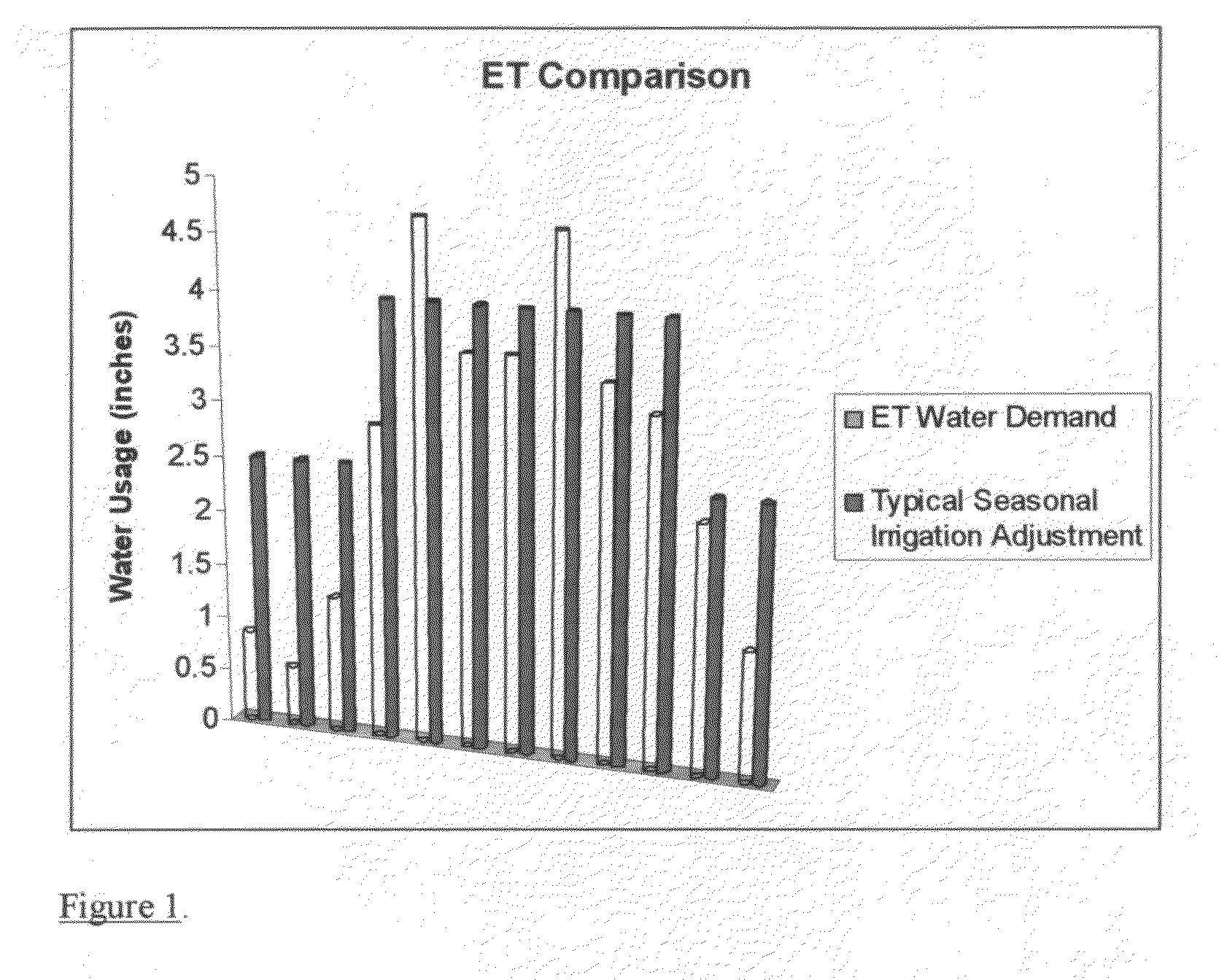Method of controlling an irrigation system
a technology of irrigation system and irrigation system, applied in non-electric variable control, process and machine control, instruments, etc., can solve the problems of excess water used and wasted, rain sensors that do not measure the necessary requirements for irrigation, and cannot adjust, so as to eliminate excessive water use, improve cost efficiency, and easy to understand
- Summary
- Abstract
- Description
- Claims
- Application Information
AI Technical Summary
Benefits of technology
Problems solved by technology
Method used
Image
Examples
example 1
[0030]Calculation of run time to apply 1″ of water where PR equal to 1.5″, where K equal to 0.7 and where IE equal to 80 percent.
T=60×ET0×KCPR×IET=60×1×.71.5×.8[0031]T=35 minutes
example 2
[0032]Calculation of run time based on ET equal to 0.2, PR equal to 1.5″, K equal to 0.7 and IE equal to 80 percent.
T=60×.2×.71.5×.8[0033]T=7 minutes
example 3
[0034]Calculation of run time based on application of 1″ of water with precipitation rate equal to 1.5″, K equal to 0.7 and IE equal to 80 percent multiplied by ET equal 0.2.[0035]T=35 minutes time calculated to provide 1″ with values set above x ET[0036]T=35×0.2[0037]T=7 minutes
[0038]The above examples are to prove that ET can be used as a percentage against run time and produce the same result as using precipitation rate calculation with the use of irrigation efficiency and landscape coefficient. Example 1 shows what the run time would need to be to apply 1″ of water. Example 2 shows what the run time would be using a precipitation rate based on 1.5″ of water and 0.2 ET value. Example 3 shows run time based at 1″ of water is than multiplied by ET to obtain the same value as defined in example 2. By calculating run times based on 1″ application of water with irrigation efficiency and landscape coefficients, ET can become a percentage of run time to make adjustment.
[0039]As shown ab...
PUM
 Login to View More
Login to View More Abstract
Description
Claims
Application Information
 Login to View More
Login to View More - R&D
- Intellectual Property
- Life Sciences
- Materials
- Tech Scout
- Unparalleled Data Quality
- Higher Quality Content
- 60% Fewer Hallucinations
Browse by: Latest US Patents, China's latest patents, Technical Efficacy Thesaurus, Application Domain, Technology Topic, Popular Technical Reports.
© 2025 PatSnap. All rights reserved.Legal|Privacy policy|Modern Slavery Act Transparency Statement|Sitemap|About US| Contact US: help@patsnap.com



